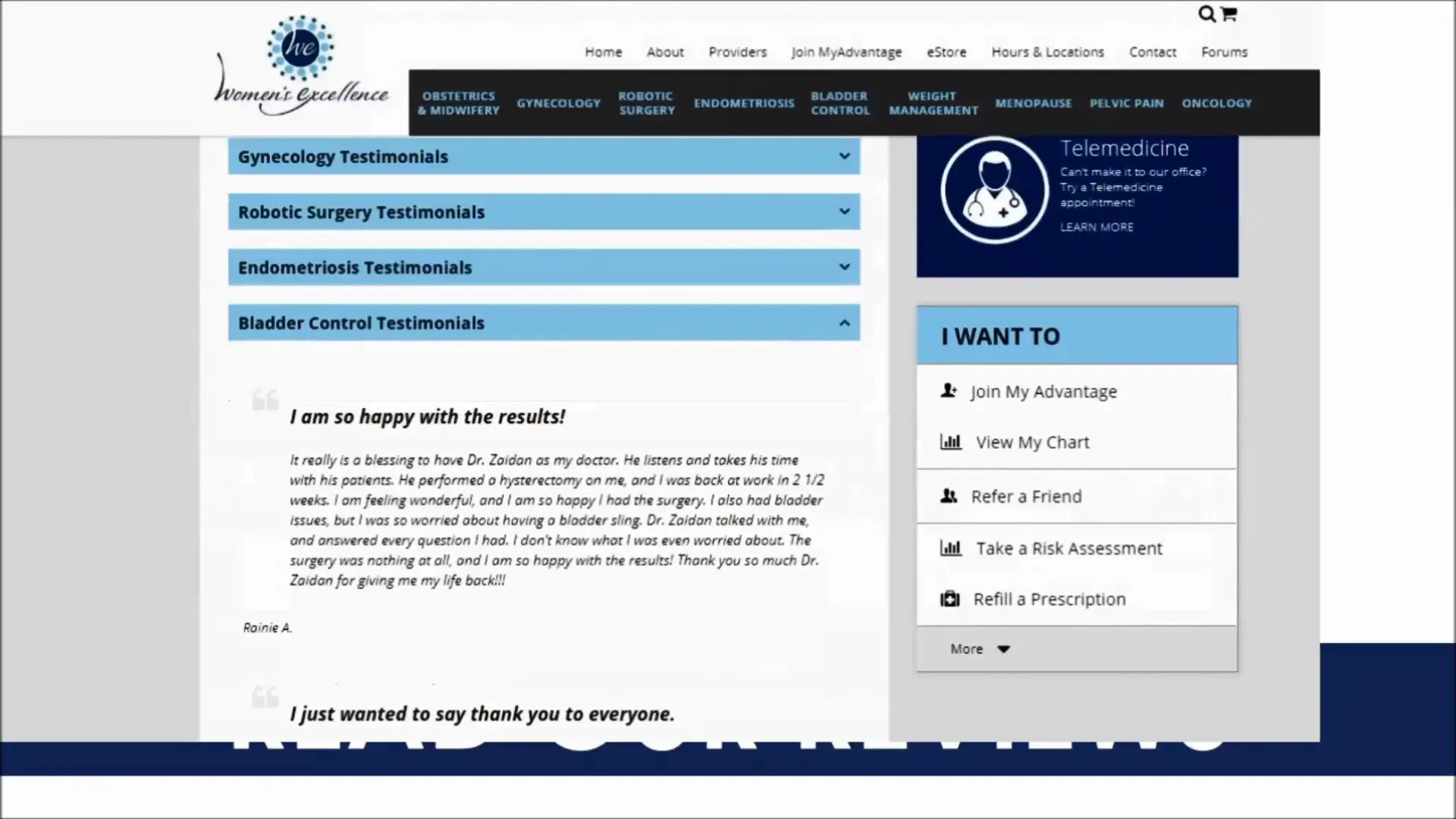Hereditary Cancer Test: Assessment Below!
At Women’s Excellence, we take preventative care seriously. Everyone is familiar with annual exams and mammograms, but what about going one step further and looking at your genetic makeup? We provide state of the art hereditary cancer testing that will gives patients a breast cancer risk assessment, ovarian cancer risk assessment, and insight on other diseases that can be inherited.
We offer patients a 29-gene panel that identifies an elevated risk for eight hereditary diseases including:
1. Breast cancer
2. Uterine cancer
3. Ovarian cancer
4. Endometrial cancer
5. Melanoma
6. Pancreatic cancer
7. Colorectal cancer
8. Gastric cancer
The hereditary cancer risk test is a simple blood test taken in our office. To see if you are a candidate for the blood test, fill out the cancer risk assessment below. This brief questionnaire will help you determine whether you should be further evaluated for Hereditary Breast and Ovarian Cancer syndrome, Lynch syndrome, or other hereditary cancers as listed above.
Don’t forget to include BOTH your mother’s and father’s side of the family when answering questions.
These questions are based on the clinical guidelines doctors use to determine whether you should be tested for one of the above syndromes. This is not a test, but rather a questionnaire to help determine risk so you can be prepared to talk to your doctor about further evaluation of your personal and family history of cancer.
Hereditary Cancer Quiz
Frequently Asked Questions
Do you offer a breast cancer risk assessment or BRCA risk assessment?
Yes! Our comprehensive hereditary cancer risk test includes a breast risk assessment and identification of the BRCA gene in your blood.
How much does a hereditary cancer test cost?
In most qualifying cases, hereditary cancer testing is fully covered by insurance. For more information regarding your specific insurance, contact us today.
How does hereditary cancer testing work?
Once you complete the Cancer Risk Assessment, our team will determine if you qualify for the hereditary cancer risk test. This test is a simple blood test that is taken in one of our offices. The blood sample is sent to a lab that specializes in this test. Results take anywhere between 4-6 weeks to be processed. When your results are available, a Women’s Excellence team member will contact you to schedule your results visit.
What if I do not qualify for hereditary cancer testing?
If you do not qualify for hereditary cancer testing, this means that you are not at a hereditary risk for the cancers listed above. However, this does not mean that there is no chance of developing any of these diseases. For non-qualifying participants, Women’s Excellence offers a comprehensive cancer prevention visit to educate you on ways to prevent cancer through lifestyle changes, diet, exercise, habits, and more.








Women's Health BlogRead More
Hereditary Cancer Risk Testing for Women: Empowering Choices and Saving Lives
Cancer is a formidable adversary that affects millions of lives worldwide. While cancer can strike anyone, it is a well-established fact that certain types of cancer have a he
Read More
Breast Cancer Awareness Month
October is Breast Cancer Awareness Month, a time when individuals, communities, and organizations around the world come together to raise awareness about breast cancer and pro
Read More
Bone Health for Women
From helping our bodies move to protecting our internal organs, our bones play an important role in our overall health. Building and maintaining good bone health is crucia
Read More
What's New at Women's ExcellenceRead More
Virtual Women’s Health Visits Now Available at Women’s Excellence, Expanding Access to Care
Women's Excellence, a leading healthcare provider specializing in women's health, is excited to announce the expansion of its virtual visit program called Specialty Virtual Ca
Read More
Women’s Excellence Leads the Way in Comprehensive Hormonal Management Care for Women
Women's Excellence, a renowned healthcare provider specializing in women's health, is proud to announce its comprehensive and expert hormonal management care program. Hormones
Read More
Helping Women Take Control of Their Bladder
Many women suffer from bladder control problems including urinary leakage, overactive bladder (OAB), stress incontinence, pelvic organ prolapse, or even interstitial cystitis
Read More